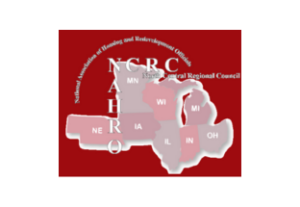Virtual reality in real estate
While Virtual Reality may be making big waves in the video game industry, other markets around the world are also integrating VR tech into their businesses. On a recent episode of “Building Success: A Real Estate Podcast,” Nick Busietta, Managing Director at Liminal VR, took a deep dive into the world of VR as it exists today and how it serves to benefit the real estate market.
What is Virtual Reality?
Virtual reality (VR) can be used to capture images of the real world and display them in 360-degree video format. By looking through the viewfinder and moving your head around, you can take in stark or moving images. Depending on the type of VR system you’re using, you may even get to walk around the digital environment and interact with it.
Whether it involves a full headset, controllers, or even just a piece of cardboard that holds a smartphone, virtual reality at its core is about immersing people in a digital world. From Facebook-owned VR hardware, Oculus Rift, to the small, “do it yourself” approach of Google Cardboard, there’s no question that VR has been dominating new media conversations for years.
That being said, there are two different kinds of VR. One involves mobile systems that can connect to smartphones and play special videos for a portable experience. Others, like the Oculus Rift and other video game systems, connect to powerful consoles.
How does VR enhance visual media?
No matter the medium, the purpose of media has always been to move the consumer. Virtual reality is no different. Over the past few decades, movies, television shows, and video games have become top-of-the line visual media experiences known for how they can move, entertain, and inform consumers. However, the introduction of VR, a technology that allows you to interact with a digital environment in such an immersive way adds a new layer of connection to content.
By letting consumers interact with moving and unmoving images in an enclosed space, VR makes you feel closer to what you’re seeing visually and emotionally. That’s an opportunity every content creator should want to take advantage of, whether they’re a filmmaker, news producer, retail business, or even a real estate developer or property manager.
How does VR help the real estate market?
How would you feel about buying a home that you’ve never seen in person? How about renting a unit in an apartment complex that hasn’t been built yet? No savvy consumer ever buys such a large product like a living space without interacting with it in a meaningful way, and virtual reality allows the perfect opportunity for that kind of engagement.
Through special VR experiences, property managers can set up virtual walkthroughs of homes and apartment complexes still under construction. Potential tenants and homeowners can view this as an image with a mobile VR system or even as a full, interactive experience with special hardware. In these experiences, the viewer might be able to walk around the space, see the property from different angles, and even explore some of the finer details like cabinets, furniture or utilities. Of course, VR technology can also benefit potential tenants that can’t afford the time to drive out and see a far-away property.
Virtual reality can also play a big role in real estate development at a conceptual stage. On “Building Success,” Nick Busietta expanded upon some of the ways Liminal VR is bringing virtual reality to the real estate market. He talked about how at the moment, Liminal is currently working on VR technology that would assist local governments in town planning and infrastructure.
In addition to this, architects are currently including VR technology in their workflows on a regular basis, using them to explore sites not yet built or foundations that are temporarily unreachable. Liminal is working on technology that would also allow architects to distribute development plans and simulations for the purpose of gathering feedback and using it to inform their construction plans.
For more information about VR and Liminal, visit their website, and don’t forget to check out other episodes of “Building Success: A Real Estate Podcast” for all the latest insights into the industry.
An MRI Client Success Story: Southwood Realty
How Southwood Realty revolutionized their business with the MRI Living toolbox Founded in 1977, Southwood Realty is a family-owned property management company based out of Gastonia, North Carolina. With locations in North Carolina, South Carolina, Te…

